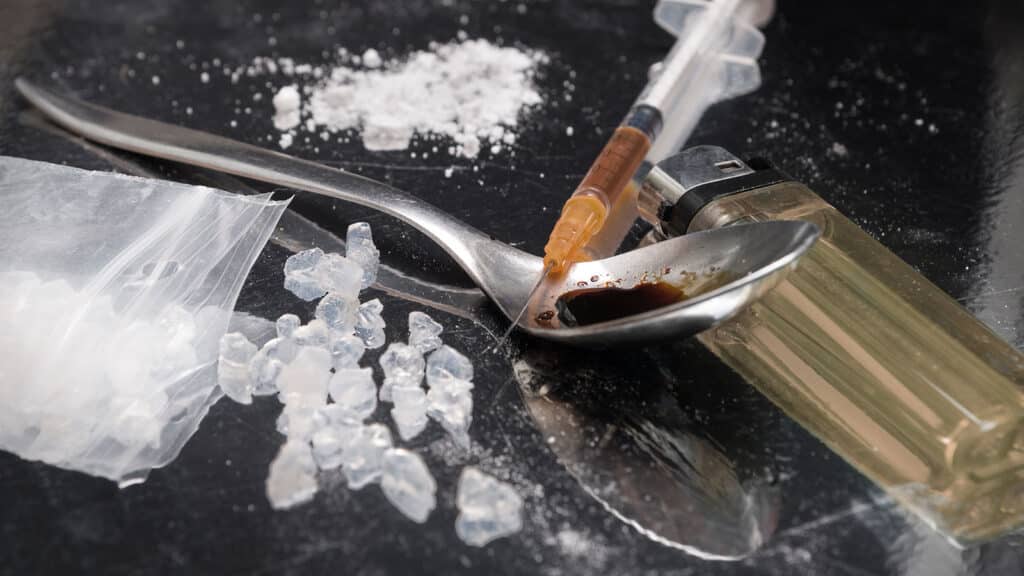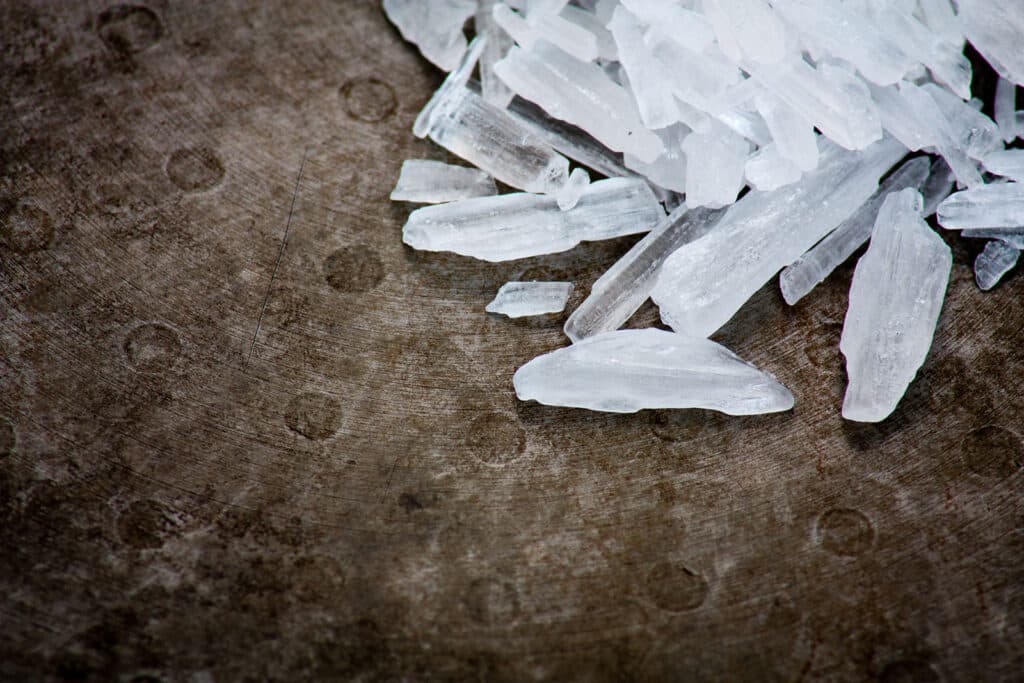Meth, or methamphetamine, is a highly addictive drug that has torn lives and relationships apart. Whether injected, snorted, or smoked, meth also has devastating effects on personal health and can even result in death. While recreational meth users will go through a crash for a few days if they do not continue using, the withdrawal experience for an addict can last much longer and can produce more serious side effects. Unfortunately, these side effects are among the top reasons many meth users find it difficult to get clean and stay sober. Continuing to use meth seems like the only way to alleviate the symptoms for many users. In some cases, users will gradually increase their dose over time, and this fuels the addiction. If you or your loved ones have been struggling with a meth addiction, rest assured that help is available to help them out of drug use or any life-threatening substance use disorder and other co-occurring disorders to improve their well-being.
Table of Contents
The Need for Medical Meth Detox
Getting clean can be a painful experience with both acute and post-acute withdrawal symptoms. However, with a medical detox program, you can receive around-the-clock care as the drug is removed from your system. A treatment plan to manage withdrawal symptoms may be combined with regular checks of your vitals throughout the process. After meth detox, additional support is available through recovery programs and counseling to help you stay clean.

Meth Withdrawal Symptoms
The specific withdrawal symptoms that you experience, as well as their severity and length, will depend on a few factors. Some of these are how long you have been using meth and how much you use. Other factors may include physical symptoms and mental health and your use of alcohol or other drugs.
Methamphetamine withdrawal is broken down into two phases. The first phase could last up to 10 days or longer for some people. However, the symptoms are strongest during the first day. Some of these symptoms include cravings, agitation, headaches, hunger, anxiety, depression, tremors and shaking, fatigue, and excessive sleep.
During the second phase of meth withdrawal, your body will attempt to normalize brain chemicals and nerve processes that have been impacted by meth use. While the related symptoms are less severe than in phase one, they often last for two weeks or longer. You may experience changes in your perception of pleasure, cognitive performance, self-control, mood, psychological stress, and motivation. If you have an underlying mental health condition, meth detox could increase depression and anxiety symptoms. In some people, it has resulted in psychosis and suicidal thoughts.
Medical detox for a meth addiction provides you with the professional support necessary to remain safe and healthy during the process. Your healthcare providers will also support you through the process to help you achieve your goal.
The Detox Experience
You will be made as comfortable as possible in a medically supervised detox center. You will have a private or semi-private room that includes a comfortable bed, and it may also have a TV, a couch or chair, and other features. In some treatment facilities, you can also spend time in a common area when you feel up to it. You will have full access to drinks and food. In addition to monitoring your vital signs, your team of doctors and nurses is available to assist with pain management and mental distress as your body rids itself of the drug. Prescription medications may be provided to ease symptoms.
Prescription Medications Used to Treat Withdrawal Symptoms
While there is not an FDA-approved treatment for detoxing from meth, there are medications that can alleviate withdrawal symptoms. One of these is Mirtazapine or Remeron. It balances brain chemicals while also alleviating depression, anxiety, and intense cravings. Provigil, or Modafinil, is a stimulant that regulates emotions and decreases cravings. Several SSRIs may be prescribed for anxiety and depression, including Lexapro, Celexa, Zoloft, Paxil, and Prozac. You may also be prescribed a sleep medication if you have trouble sleeping or sleep disturbances.
Recovery Steps After Meth Detox
Meth recovery starts with detox; a few additional steps can help you avoid a relapse and maintain sobriety going forward. First, the physical and psychological effects of using meth must be addressed. Once this is done, the factors contributing to drug abuse must be identified and improved. For some people, struggling with low self-esteem, loss, grief, trauma, stress, and unhealthy relationships can contribute to addiction. If you have an underlying mental health condition, such as bipolar disorder, depression, or something else, treatment is necessary. Establishing a healthy life structure and building a support system can help you to maintain sobriety. A meth addiction treatment program will assist you with each of these important steps.

What Is Meth Addiction Treatment?
There are two types of meth addiction treatment options. Inpatient treatment requires you to remain in the treatment center around the clock, and outpatient treatment enables you to return home at the end of the day. Because a meth addiction has strong effects on a person’s brain and physical health, inpatient treatment is often recommended or even necessary.
Your meth addiction treatment program will include several types of therapy. Individual therapy is private counseling to identify and improve unhealthy thoughts and behaviors. Several types of therapy may be used in these individual sessions, including motivational interviewing, cognitive behavioral therapy, dialectical behavior therapy, and acceptance and commitment therapy. Your addiction treatment program may also include group and family therapy sessions. Group therapy provides support and understanding from others who are on their own path to sobriety. Family therapy examines and strengthens relationships that may have suffered because of the addiction. It also teaches your family members how to support you in your sober lifestyle. In some treatment programs, you may also participate in other types of therapy. These may include mindfulness and meditation, adventure therapy, art therapy, music therapy, and psychodrama.
In your meth addiction treatment program, you may meet with a psychiatrist. This medical professional can diagnose and treat mental health issues like anxiety, depression, and others. Medications may be prescribed to help you manage related symptoms.
Some studies have shown that it may take as long as 12 months for a meth addict to achieve impulse control. This lengthy period of time can contribute to a relapse. Because of this, a meth addiction treatment program includes preventive steps and strategies. For example, you may join a 12-step program so that you have access to support and resources. You may also be encouraged to focus on personal fitness, meditation, and other aspects of healthy living. After completing your meth addiction treatment program, you can also attend special alumni events.
Paying for Meth Detox and an Addiction Recovery Program
In many cases, detoxification and rehab are covered under a major insurance plan. If you have health insurance, your coverage may pay for most or all of the cost of detox. The rehab cost may be covered in different ways by various plans. However, many insurance plans require you to pay a co-pay or a deductible. You can contact your insurance provider by phone to learn about your insurance coverage. You can also inquire about your coverage through the detox and rehab facility where you wish to seek treatment from.
Learn More Today
Many meth users increase their usage over time. This can strengthen the addiction and may contribute to more significant physical and psychological effects. If you are struggling with meth addiction, seeking treatment is essential. At Illinois Recovery Center, you can benefit from both medically supervised detox and a comprehensive rehab program. To learn more about treatment and your insurance coverage, contact Illinois Recovery Center today.
FAQ
What does real meth look like?
What does crystal meth look like?
How to detox from meth?
How to handle meth withdrawals in overweight people?
How does meth affect someone with adhd?
